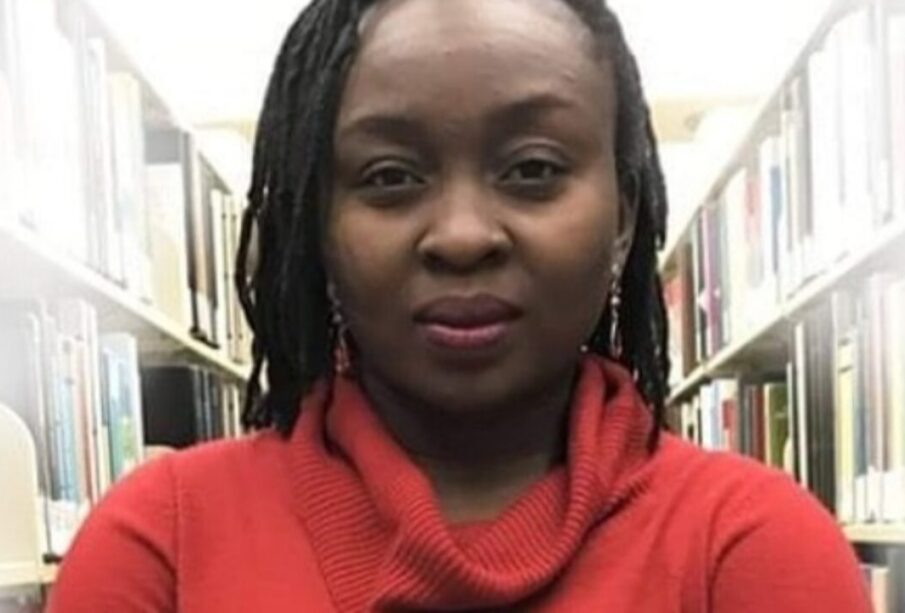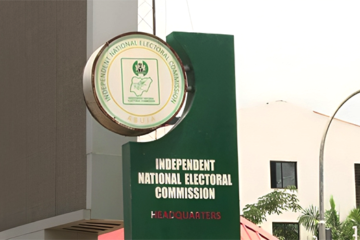Fisayo Soyombo and the trouble with taking Nigeria too seriously [OPINION]

Abimbola Adelakun
By Abimbola Adelakun
After many years of guarding oil pipeline installations, the Nigerian Army finally made its first high-profile arrest. It turned out to be a journalist! Investigative journalist and founder of the Foundation for Investigative Journalism, Fisayo Soyombo became the face of the Army’s eventual success in apprehending oil thieves. Of course, they regularly announce arrests of some faceless and nameless people. Hardly anyone bothers to follow up on their prosecution. We have all been Nigerian long enough to know that some crimes persist in the country, not simply because the criminals are resilient but because the ring of perpetration is so institutionalised that it should be considered an extension of the civil service. That is essentially the story of oil bunkering in Nigeria.
We were all here in 2019 when Rivers governor Nyesom Wike accused the Nigerian Army of running illegal bunkering in Rivers State. He did not insinuate; Wike specifically accused the general officer commanding the Army’s 6 Division in Port Harcourt, Jamil Sarham, of using soldiers to steal and sell petroleum products in the region. In a country that takes itself seriously, that sort of accusation would neither be flippantly made nor lightly received. However, this is Nigeria. The only thing guaranteed to happen is nothing.
Wike did not say anything anyone did not already know. By the time you reach the end of organised crime in Nigeria, you will discover it is an appendage of the administrative state. Oil theft is run by legitimate state actors. When the government says it is looking for oil thieves, what they are searching for are the unemployed youths who carve out their own spaces outside of the massive extra-legal operations that the government has created for itself.
When finally released from detention, Soyombo granted an interview on AriseTV where he noted that the sensitive information he shared with the officers somehow ended up with the oil thieves. By leaking details of the information he gave them, they ensured they jeopardised the rest of his investigations. Still, congratulations! Even with that outcome, one can argue that the investigation succeeded in a way that would not have been so well-illustrated if you had published it in the most poetic language a poet could have mustered. If anyone was ever in doubt that the state and the so-called oil thieves are in cahoots, here is irrefutable proof.
But if there is something Soyombo’s series of explosive investigations has repeatedly proven, it is also that Nigeria does not take itself too seriously. Those serious enough about Nigeria and even demonstrating it by putting their lives on the line end up appearing to be doing too much. For instance, during his AriseTV interview, Soyombo mentioned his earlier investigation that revealed a child trafficking ring in the country and how the same state officials who should act have stonewalled him. I remember reading the publication open-mouthed, genuinely shocked that the process of giving a child out to adopters in the country was that lax. In a society where the earth has eyes, the jaw-dropping revelations should have led to reforms in the child adoption industry. Nigeria slacks in many areas, but you would be forgiven if you took it for granted that we would at least protect the most vulnerable among us. For nothing to happen, you realise that Nigeria cares for none of its children.
Then, in 2019, he investigated the corruption of the Nigerian Prison Service. He also put himself on the line for that fact-finding mission. One would think that the Nigerian government would at least meet him halfway, but for where? What eventually woke them up to the sordid reality of the NPS was Bobrisky. Yes, Bobrisky did that for us. Before you knew it, the interior minister, Olubunmi Tunji-Ojo, had announced an investigation. The National Assembly set up a fact-finding panel and even invited a social media rabble-rouser to testify before them. Then you wonder why the sudden seriousness. The knowledge they needed to act was available in the public sphere all along, but they were only aroused to their duties when the matter had to do with sex.
Come to think of it, maybe that is how the outcome of investigative journalism should be published in Nigeria. Perhaps that was what was missing all along! Attach sex to reports of investigation in any form, and the relevant agencies will be tempted to pay attention. Who knows, sex might finally motivate state officials to take decisive action over the rotten state of another bureaucracy where Soyombo has conducted a series of investigations: the Nigerian Customs Service. He has investigated the agency and published a series of reports, but the silence from the same administration that was awakened during the Bobrisky saga can wake even the dead.
The good book says we will know the truth, and the truth will free us, but Nigeria defies that hope. We know the truth, and even the truth knows us back, but we are not yet free. We have been compromised on every front by leaders who cannot bring themselves to even feign any interest in social progress. Under their watch, virtually every decadent institution is allowed to progressively decay. The lesser their structural integrity, the more pliable—and better readied—they are for the machinations of these tyrannical leaders. Their disinterest in arresting the rot means it keeps spreading, eating into every organ, every nerve, every cell, every bit of the society.
What is eating up our society from the inside is gnawing at the brains now, God help us! In several directions you look, nothing seems to be taken seriously. Here is a recent and unfunny example: The Nigerian Presidential Compressed Natural Gas Initiative employed the services of some comedians and singers (one, the musician Innocent Idibia, popularly called TuFace; two, Waris Olayinka Akinwande, the social media jokester popularly called Ola of Lagos; three, musician Dauda Kahutu Rarara, and comedian Bright Okpocha, whom everyone knows as Basket Mouth) on a fact-finding trip to India to learn about Compressed Natural Gas and convince Nigerians at home that it was safe for use. One wonders, if the FG is serious about swaying people towards CNG, why hire comedians and singers? Whatever happened to actual experts?
Imagine that you are an engineer with years of training in this area. You have been honing your skills (maybe even up to PhD level), waiting for the day you will be called to serve society with the knowledge. Then you wake up one day and learn that those called to the serious assignment are the amusers. Imagine the betrayal you will feel when you realise that you wasted time taking Nigeria too seriously. Please note that this is not an argument against entertainers as people who can also positively influence their society. There are countless examples of comedians playing the role of a society’s intellectuals, but expertise is expertise. If we have sincere questions about what CNG would mean for the life expectancy of vehicles that would need to be retrofitted, are comedians the right people to ask?
When it eventually dawns on you that Nigeria is not a serious country, it hits so hard that being struck by thunder would have been gentler. You realise that you have been investing your passion in a country that is not passionate enough about itself; you embarked on a redemption quest for a country that is just not ready. When the rage that seizes you finally subsides, you experience a calm within. That is the moment you come to full Nigerian maturity. And you know that because when they start another round of noise over one thing, one thing in the Nigerian streets, you just enter your own house and close the door.
Culled from The Punch











